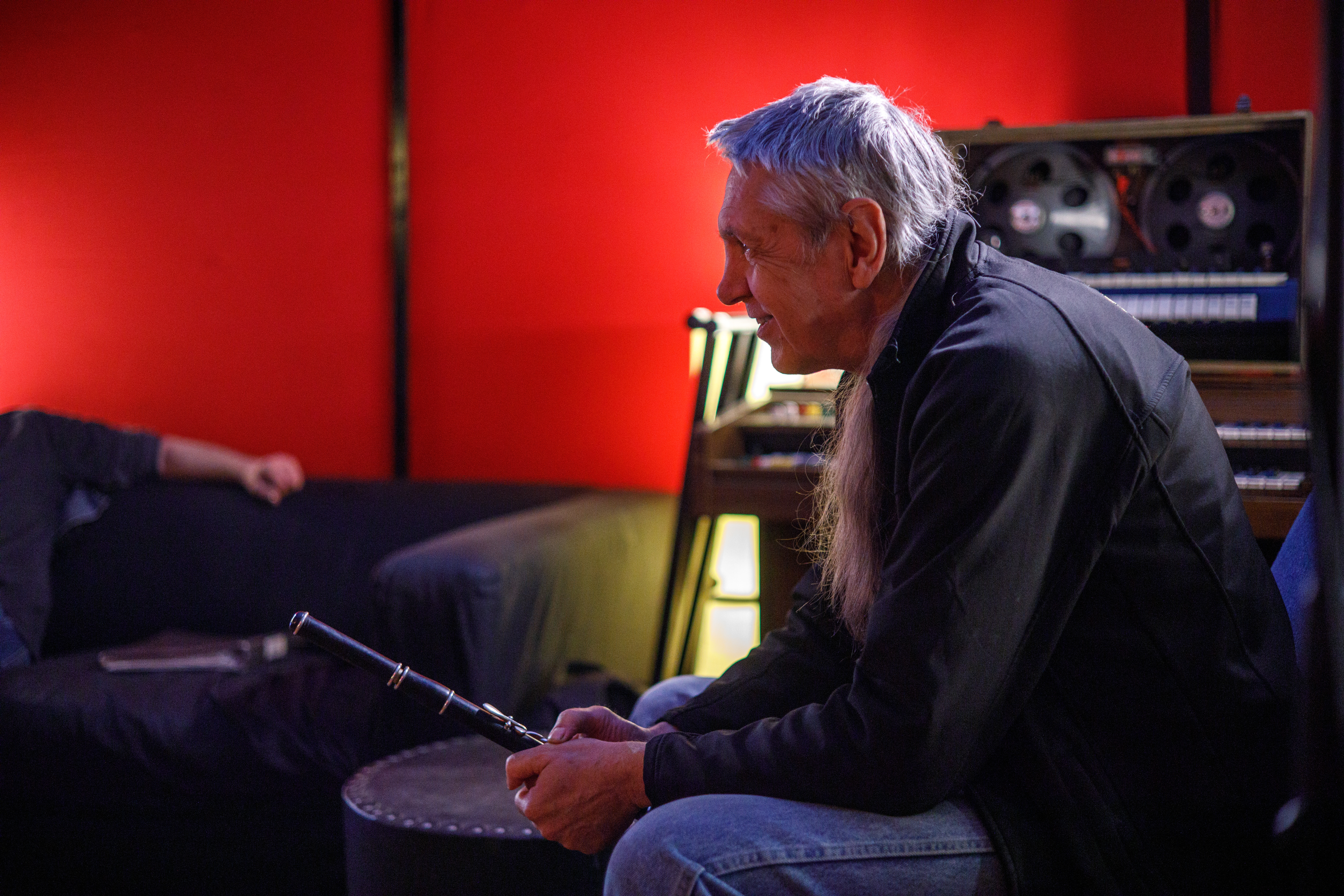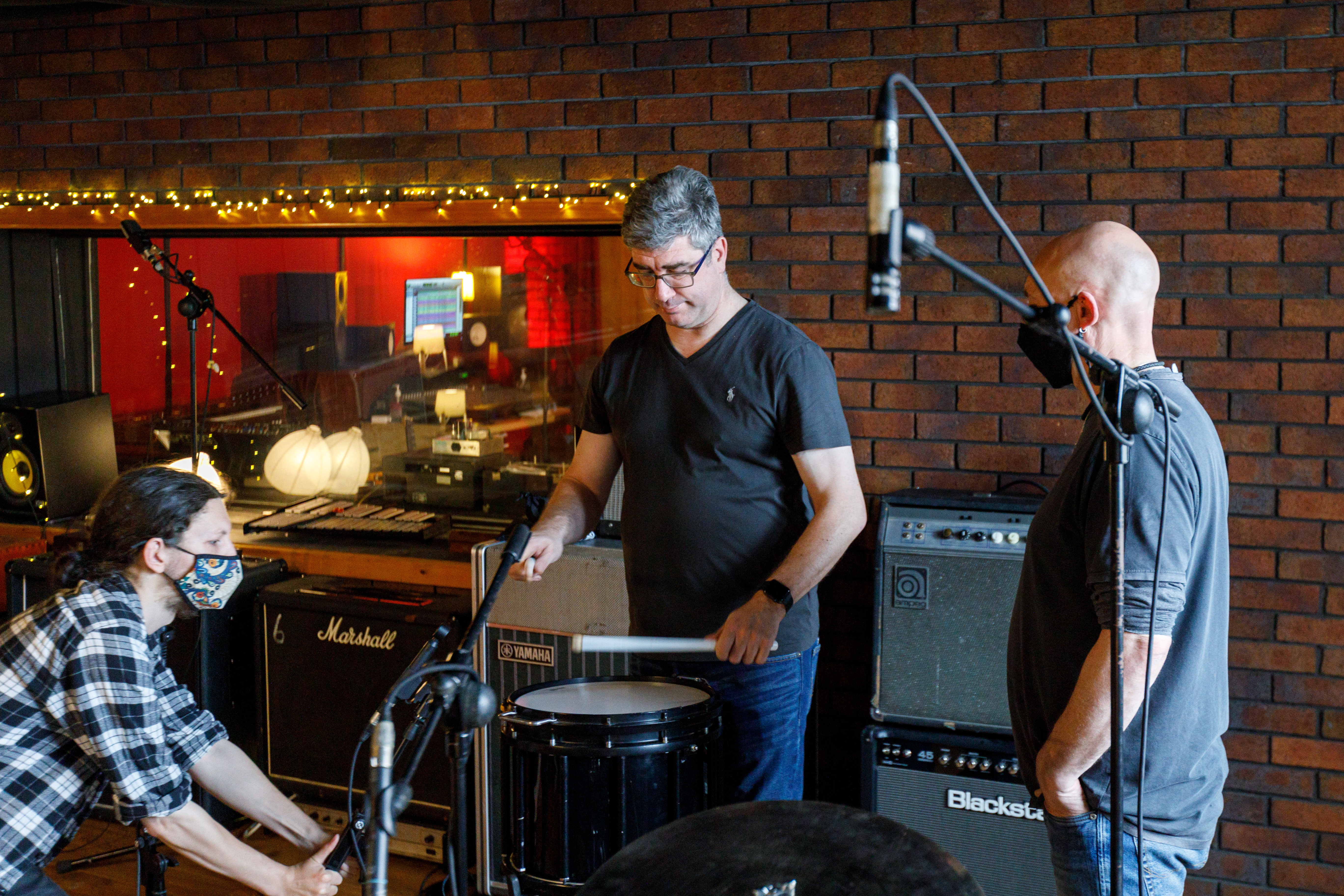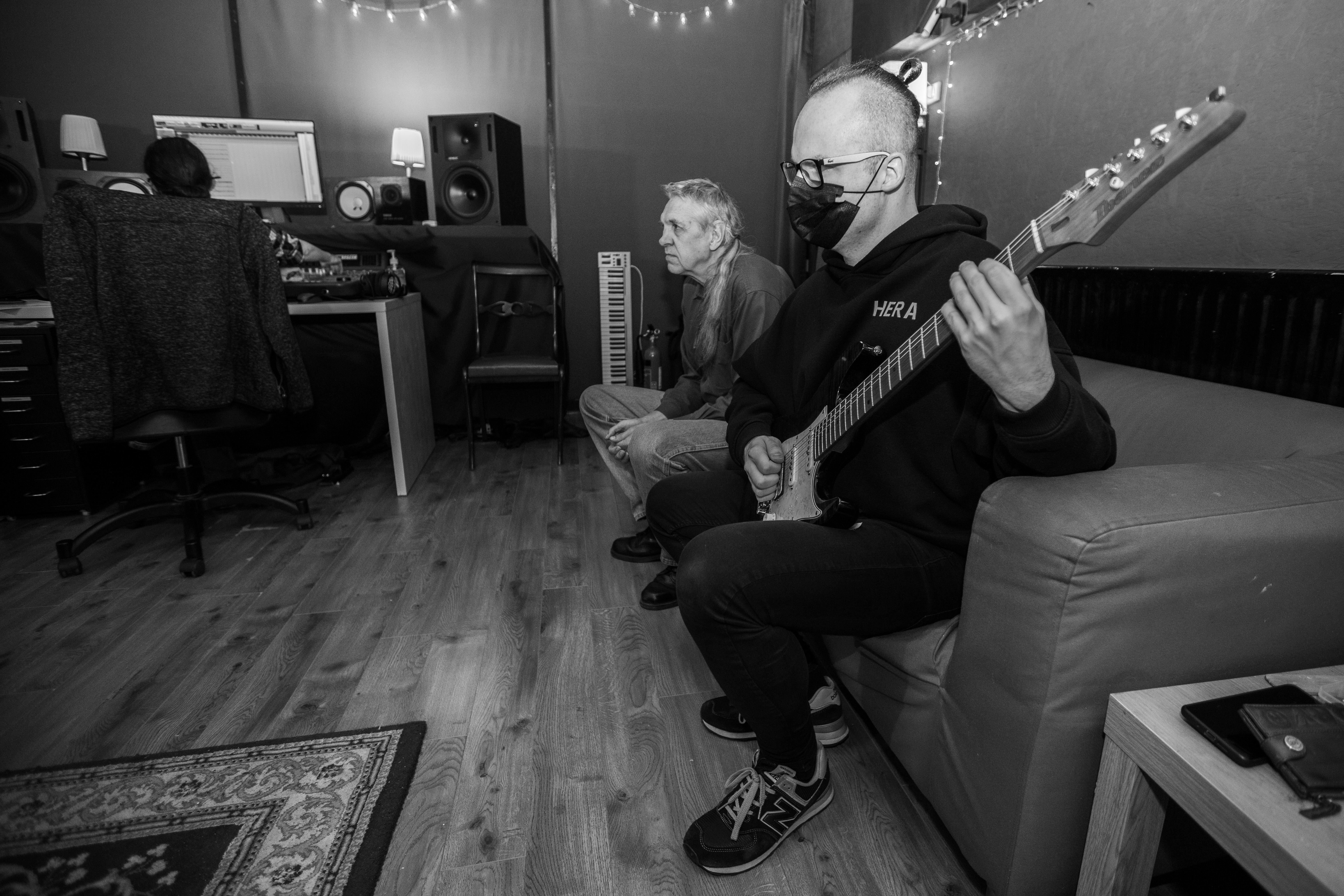Musicians from loyalist marching bands and heavy rock bands were doubled booked into a recording session at Start Together Recording Studios Belfast. The outcome was “Marching Metal”.
Marching Metal first music video was an interpretation of "The Star of the County Down"
Pre-production of Marching Metal 2 has begun for release October 2025.
"The Star of the County Down" (Music Video)
A Beyond Skin project production for Make Music Day
Glenn Millar - Flute & side drum
Davy Bates - Drums
Gordon Ramsey - Flute
Kacper Lewandowski - Guitars
Audio recorded at Start Together Studios (Niall Doran)
Mixed by Kacper Lewandowski
Video produced by Matthew Killen
Supported by Belfast Music (Belfast City Council), Arts Council Northern Ireland, Make Music Day UK
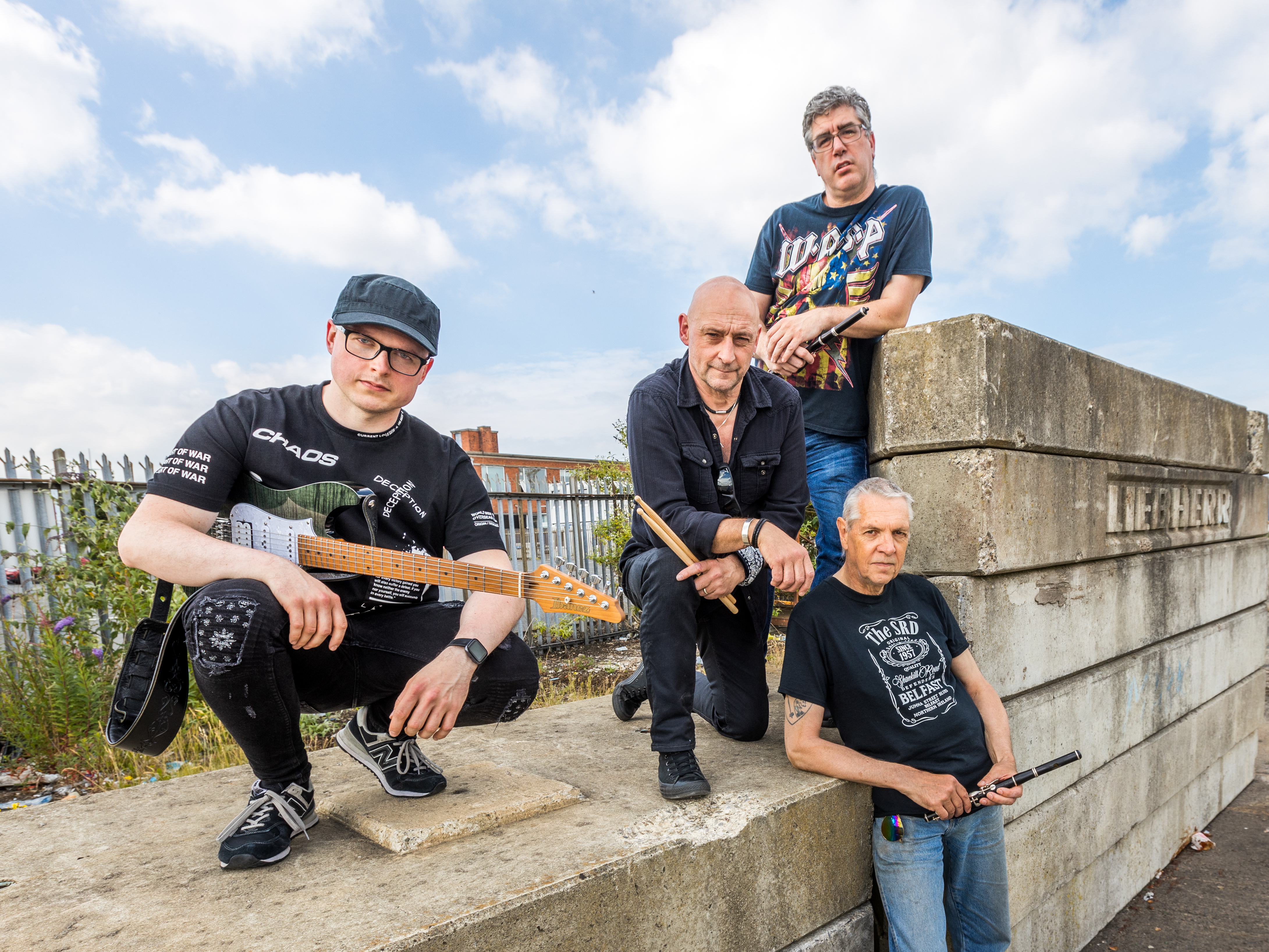
Gordon Ramsey
Flautist with Shankill Road Defenders, author and tutor at Queen's University Belfast School of History & Anthropology.

Glenn Millar
Musician/Composer, Flautist with Pride of the Raven and Ballymacarrett Defenders Flute Band. Author (Made to Parade), Restorative Training Coordinator at Alternatives Restorative Justice.

Kacper Lewandowsk
Musician, Composer, Producer and Recording Engineer, Beyond Skin Youth4Peace Ambassador. Senior Audio Technician / Audio Engineer at Belfast Met

Davy Bates
Drummer previously with Sweet Savage, Stormzone, The Roosters. Drum Teacher and Workshop Facilitator.
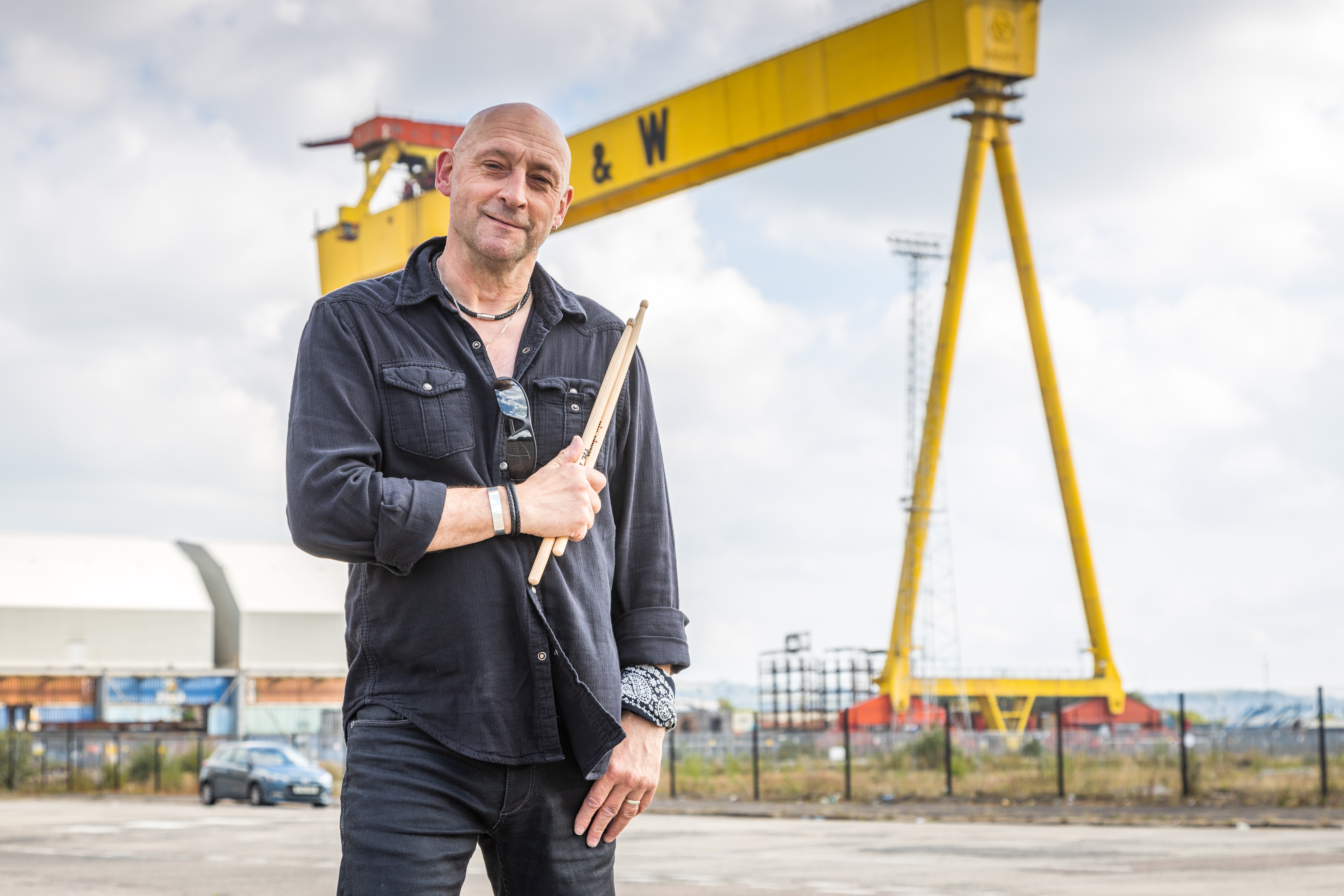
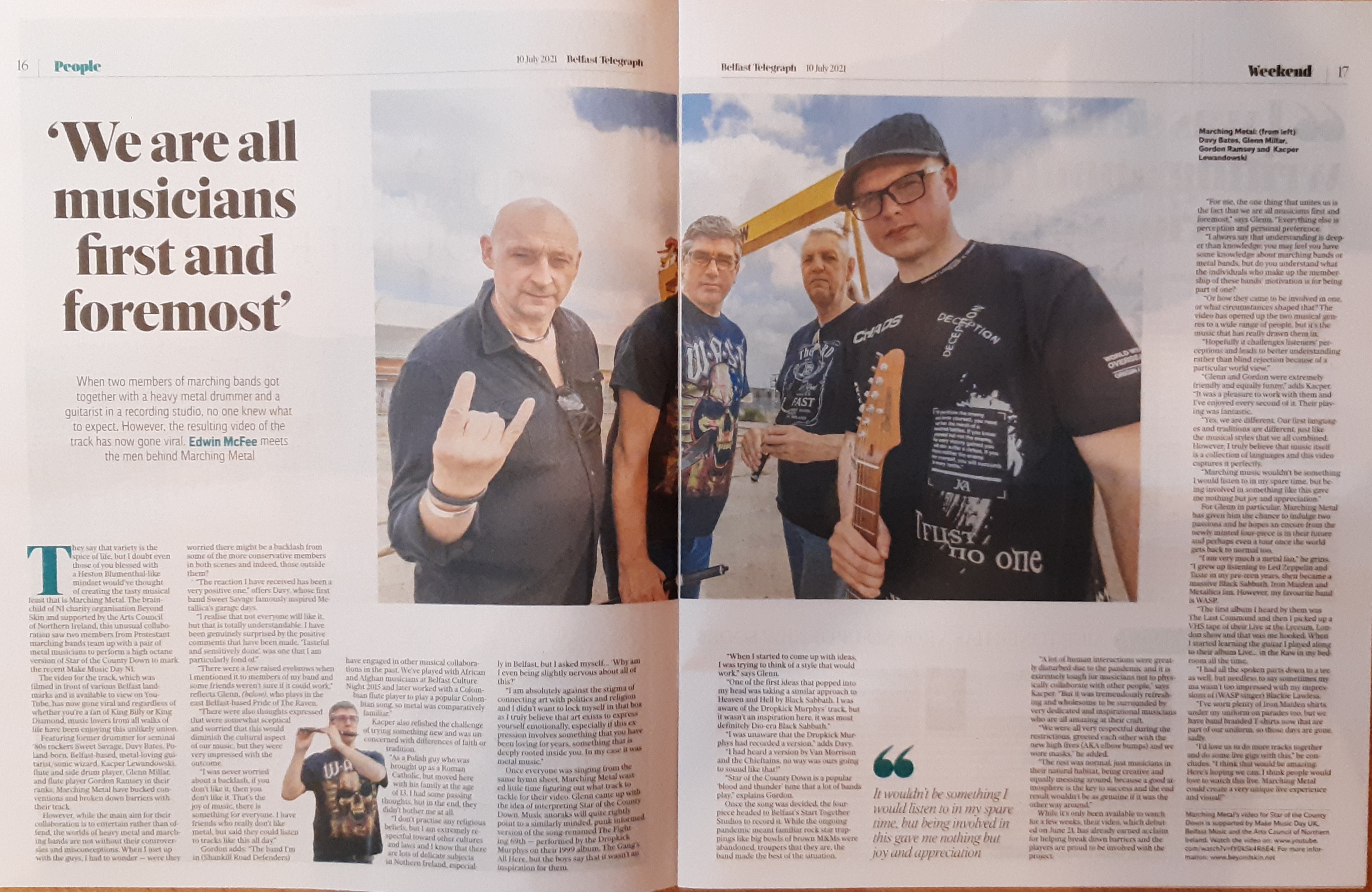
A fife has a straight bore, is usually made of local wood (traditionally boxwood, now more often oak as there is no more box in Ireland) by local craftsmen, and has no keys, meaning it can only easily play traditional tunes. It was the product of a local economy.
A simple-system flute, such as the B-flat flutes we were playing, has a conical bore (requiring precision machining in a factory), is usually made of exotic wood (African blackwood in this case, or now sometimes plastic) and is usually equipped with keys enabling a wider range of music to be played, including military marches, popular songs and classical music. It was a product of a global economy. The British Army replaced fifes with B-flat flutes in 1887 and Flute Bands started to replace Fifes & Lambegs in parades in Ireland about the same time.
Incidentally, the marching band flute is technically identical to the flute played in Irish traditional music (the German flute as it was called when introduced to Ireland in the 19th century). Both are simple-system flutes but the trad flute is longer because it is keyed in Low D whereas the marching band flute is keyed in high B-flat. The German flute was the standard orchestral flute until replaced by Boehm-system flutes (using a straight bore and much more complex key mechanisms) in the later 19th century. When orchestras abandoned simple-system flutes, lots of them were sold off cheap and snapped up by traditional musicians, which is how the German Flute became the Irish Flute. - Gordion Ramsey
